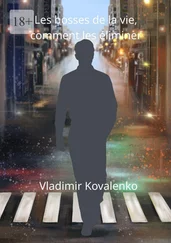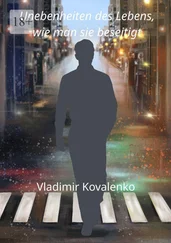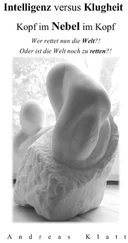We took down the rope, replaced the mattress on the bed, and once again we were living in our room. But that wasn’t everything. There was milk, bread, lard, meat and cheese on the table, all wrapped in paper, freshly bought at the store … Mother came in carrying a bucket of water. She cleared off the table. Then she aired out the bedding. Then she began scrubbing. Furiously, stubbornly … That evening everything was neatly organized and put away. She became a different person. She was ashamed.
Then Vati sent some fellow patient who had been released to tell us that he was coming home soon … We went to wait for him outside the smith’s house. He approached alongside a cart loaded high with shucked corn, which he would hold onto and lean on as he went … he was more green than pale and his head spun like a little drunk’s. He didn’t get his job back with Elite … They had fired him once and for all … “Der Vati will neu anfangen,” Clairi said … Yes, he wanted to sell everything of any value that he had in the wicker chest, except for the opossum … move closer to town … open a workshop, a kind of repair shop … A few days later we had to go back with our bags to the St. Vincent’s breadline. The doorkeeper nun already knew me. Vati waited around the corner … the way Charlie Chaplin as a jobless glazier waits for his son Jackie Coogan, who is throwing rocks at windows … he watched as I banged the knocker on the door. I had seen that movie with Margrit several times in the Clarmont Theater in Basel … it was the only one that they let children see … and that scene was inscribed in my memory … The doorkeeper let me in … “Oh, it’s you?” she said, pleased. As she had the time before, she led me through their handsome garden of geraniums and touch-me-nots, across their tidy courtyard into the sisters’ dining hall in the basement, where I was allowed to gather pieces of bread out of their breadbaskets and put them in a paper bag. On the way home Vati and I took a short-cut off of St. Martin’s Road that led past fields and cinder heaps to our road in Jarše and suddenly we were in the middle of some army maneuvers. Soldiers in helmets, all wearing shoulder straps, gas masks, with shovels and cartridge belts, were lying all agitated and flushed amid the molehills or in trenches and shooting, bang … bang! with blanks, raising a lot of noise and dust all around us. An officer with a red stripe on his trousers and a bare saber in hand was shouting like a pottery mender … not at us, but the soldiers. We jumped aside and fell straight into another trench, behind some soldiers in ambush who were firing across the road … the whole field was full of gray buckets … we barely managed to save our bags of bread …
That fall Vati went to look at apartments around town and found one. A room where we would have both a workshop and a kitchen. We moved to Bohorič Street. We rented a hand cart and made the trip three times … first with the suitcases and chest, then the sewing machine and table, and finally the bed …
*
What a strange bird!
†
It’s just stupid advertising for the church.
‡
He’s shouting that I need to go up to his place. I know what that means and I won’t go.
§
So now we’ve hit bottom … the poor house is our only option.
‖
No, I’m not going in there. Even if I have to die on the spot.
a
Get our things. We’re going back.
b
Why not?
c
Get our things, Bubi!
d
Let’s go.
e
But how?…
f
I left the windows open.
g
We’ll sleep over there behind the bed.
h
I have to go upstairs. We can’t just sneak in and live someplace where we haven’t paid.
i
Go to sleep now.
j
How did you get this?
A BUTCHER NAMED HAM, THE building’s owner, was a rich man. He had stables with horses and cows in the courtyard, a delivery wagon with rubber tires and an enclosed carriage, a butcher shop on the main floor and another one in its own wooden building at the market … Three of his assistants lived in rooms over the stables. His apartment was covered in Bukhara carpets and paintings … it was on the main floor, and whatever he rented out was in the upper floors of the building … aside from us there was only an old woman and her daughter who lived there … On that first day when we moved, Mr. Ham invited us down for tea … In the middle of the living room amid sofas strewn with throw cushions and embroidered armrest covers stood a black piano with the lid open. It also smelled really nice … His eldest daughter played “Trink, trink, Brüderlein trink, laß nur die Sorgen zu Haus’ ” * … because they thought we were Germans. They wanted to get in Germany’s good graces through us. We were supposed to feel proud for mistakenly belonging to a nation that was constantly throwing the world out of joint … Other people were always trying to hurt Germany or take revenge on it through us … There was lots of other music on the piano … Lucia di Lammermoor, Rusalka’s Song to the Moon, Werther … those were songs his daughter was still practicing … Our hosts wallked around with my parents drinking tea and chatting … it was fantastic! Mother and the butcher’s wife, who was wearing a rabbit fur lined with red velvet, were chatting in the most refined tones. All the worn-out words changed into magical formulas … The music and all the rest gave me the feeling that we’d arrived in some other country, some sort of theatrical play where entirely different, quite decent people performed … The Hams’ two youngest children, their seven-year-old twins Peter and Andrej, were tumbling all over each other on one of the sofas. They would insult each other by calling each other owls. Like their parents, they were both for the Falcons. The butcher’s wife was a ruddy-faced, chubby woman who had no clear connection to the piano, the carpets or the paintings … Mr. Ham, who resembled his daughter, had a pale face and a long, narrow head without a single hair that made him look like a doctor in his white lab work coat …
Our apartment was in the attic. It had two windows and a kitchen out in the hall. The hallway led under a slanted ceiling to the far wall, where the faucet and toilet were. Across from the stool was the attic apartment where the older woman lived with the pale girl who was her stepdaughter or foster child … Whenever I went to the toilet or ran the water, the old woman would push the curtain aside on their hallway window and watch in case I spilled anything under the stool … Her head was just as big as the little pane of glass she looked out through … It was all right the first, second, tenth time. But then I started to get nervous, because I could always feel those eyes on my back and the play of expressions on her face, so that I couldn’t help spilling some water when I impatiently pulled the pot away. Then the woman would come racing out. “If you spill anything, boy, you have to mop it up,” she said sweetly. I didn’t want to go to the faucet anymore and I began pleading with Clairi to go instead of me.
Our kitchen was so dark that the light had to be on even in the daytime whenever mother cooked something in the oven or on the stove … The room itself was bright and good-sized … With the money from the furs that he sold, Vati bought from an antique dealer two chairs, a table and two hammocks for the bed, which we set up at night using the beech blocks for making fur caps, so that we could sleep two and two together. He still preferred to sleep on the table rather than in bed. It was better for his spine. In the morning we took the hammocks down, set them by the wall and covered them with a blanket. In a courtyard where a public auction was held when a small shirt company went under the hammer, we got for a ridiculous price a dozen nice, big, hard, canvas-reinforced boxes with metal handles and little compartments for cards describing the merchandise. Vati put furs and other items in them and I wrote in each little frame what the box contained … during the day our attic apartment looked like a real workshop, where things were sold, too …
Читать дальше












